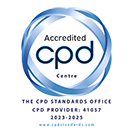11 November 2014
Arsenic in Water: A Global Problem
Organised by:
SCI's London Group in partnership with UCL's Chemical Physical Society
SCI's London Group in partnership with UCL's Chemical Physical Society
Registration Closed
This event is no longer available for registration.
Synopsis
In recent years the World Health Organisation (WHO) has considered arsenic to be one of the global chemicals of concern in drinking water supplies.
As a result in 1993, WHO reduced the guideline level from 50 to 10 μg I-1 As. Human exposure to arsenic can occur through a variety of pathways including air, water, soil and food. Arsenic exposure through food poses a substantial risk to humans in certain parts of the world, particularly in Asia from the consumption of staple foods such as rice and vegetables, which have irrigated with As-rich groundwater. The most common source of arsenic in the natural environment are volcanic rocks (specifically their weathering products and ash), marine sedimentary rocks, hydrothermal ore deposits and associated geothermal waters, and fossil fuels, including coals and petroleum.
The chemical species of arsenic, which can exist in the natural environment heavily influence its mobility, absorptivity and toxicity. In solution, arsenic primarily occurs as the inorganic arsenate (AsV) species (H2AsO4- and HAsO42-) and the uncharged arsenite (AsIII) species (H3AsO3). The organic species monomethylarsonic acid (MAV) and dimethylarsinic acid (DMAV), have also been measured in surface and groundwater at the sub μg I-1 level. Variations in redox potential and pH will affect species predominance and the distribution between aqueous and solid phases. The shallow groundwater aquifers in the Chaco-Pampean Plain of Argentina have high concentrations of total arsenic and other trace elements (B, F, Mo, V, U) causing water-quality problems in aquifers from the provinces of Cordoba, Sante Fe and Buenos Aires, as well as La Pampa. During the last 11 years we have undertaken extensive studies to determine the concentration of both total dissolved arsenic and its individual chemical species (AsIII, AsV, MAV and DMAV) using a novel solid phase extraction (SPE) technology. The SPE cartridges (500 mg SCX and SAX Varian Bond Elut-Junior) are highly effective in preserving the four arsenic species under investigation in the field, with little influence from external factors such as pH. This has also enabled an evaluation of the data produced by many studies around the world who have collected water samples in the field and undertaken HPLC-ICP-MS analysis some days to months later, and have assumed that the As species have remained stable throughout the sampling and storage period.
This presentation will review the above and provide data from studies in Argentina (and possible New Zealand, Cyprus etc) which has provided a new insight into the possible problems of arsenic in the environment.
Speaker
Prof Neil Ward, Surrey University
Programme
Accessibility Grants
SCI accessibility grants are available to support SCI members with disabilities, long term health conditions, those who require a carer, and members who are nursing parents to attend SCI events. Download an application form to apply for a grant.
Venue and Contact
UCL
Department of Chemistry
University College London
20 Gordon Street
London, WC1H 0AJ
SCI Communications
Tel: 0207 598 1594
Email: Communications@soci.org
Fees
This is a FREE event. No need to book.
Become an SCI Member and save on this and future events
See Membership OptionsSign up as an Event Member to join this event. SCI Full or Student Members receive discounts on event registrations
Booking Process/Deadlines
CPD Info
All delegates attending this meeting are able to claim CPD points.
Additional Info
Exhibition and Sponsorship
An exhibition will take place alongside the conference for companies and related organisations who may wish to exhibit. Please email conferences@soci.org for further information and prices. Spaces are limited and will be allocated on a first-come, first-served basis.





